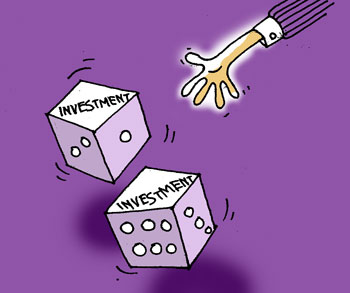
As an investor, there are a lot of investment mistakes you could make. But which is the biggest mistake one needs to avoid? Lack of diversification, looking for instant results, not assessing risk level, not having a plan, timing the market, following the crowd... though there are so many common mistakes investors around the world make, there is one that beats out all others.
When it comes to investment, there are what are known as investment principles and investment techniques. What is the difference between principles and techniques?
Principles are very basic and will never change. Principles are guidelines. Principles are simple and at the same time authentic. The more closely investment plans are aligned with investment principles, the more accurate and functional they will be.
Principles are not techniques. A technique that works in one circumstance and environment will not necessarily work in another. While investment techniques are situational specific, investment principles are deep, fundamental truths that have universal application. When these principles are internalised into habits, they empower investors to create a wide variety of investment techniques to deal with different situations. Techniques can enhance the results of a principle.
But always remember an investment technique or tool needs to be in sync with the basic investment principles. If you use a technique that overlooks a basic principle, then you could stand to lose big. So the biggest investment mistake you need to steer clear of is falling prey for cheap investment techniques that are not in alignment with basic investment principles.
Ramalingam K, an MBA (Finance) and certified financial planner, is founder & director of Holistic Investment Planners (P) Ltd (http://holisticinvestment.in).

Communication is an influential technique. Accounting is a good tool. But if we use these techniques and tools as a shortcut and not in sync with basic principles, what will happen? We know what happened to Nithyananda and Satyam Computers. You may seem to succeed, but it is not possible to sustain that success forever.
Similarly investment is not a one-time activity. It is a lifelong process. It is a long-term one in nature. A technique may lead you to success for a one-time activity. You may have won the battle, but not the war with techniques. There is a lot of difference in making money in one single transaction and making money for life. To have lifelong success with investments, you need a strong personal finance management system, not a technique. A strong ever-lasting system can be established only with sound principles.
So investors need to be very careful about cheap investment techniques that are not in sync with the investment principles. They seem to be attractive, flashy, trendy, sexy but not authentic. "Get rich quick" schemes promising "wealth without work" are investment techniques are all illusory and deceptive.
Take for example the Risk-Return Tradeoff Principle. This is a very fundamental and profound investment principle. Low level of risk is associated with low potential returns, whereas high level of risk is associated with high potential returns. In order to generate high returns you need to tolerate high risks. If you are comfortable only with low risks, you can expect only low returns.

No one can defy this basic principle. A scheme cannot deliver high returns with low risk. There were no such schemes in the past. There are no such schemes in the present. There will not be such schemes in the future too.
Finance company deposits which assured high interest rates have defaulted. One of the latest examples would be the ponzi scheme by Madoff.
Whenever you hear about such schemes with low risks and high returns, you must understand it is an illusion. It is better to ask more questions and get it clarified, instead of making assumptions that could prove very costly.
So the biggest investment mistake is to mindlessly follow a technique which is against an investment principle. To avoid this investment mistake whenever we come across an investment scheme or investment technique, consciously check whether this scheme or technique is violating any basic investment principle or not.
One who does this check has lifelong investment success with him. One who does not walks on a sure way of making huge investment losses.